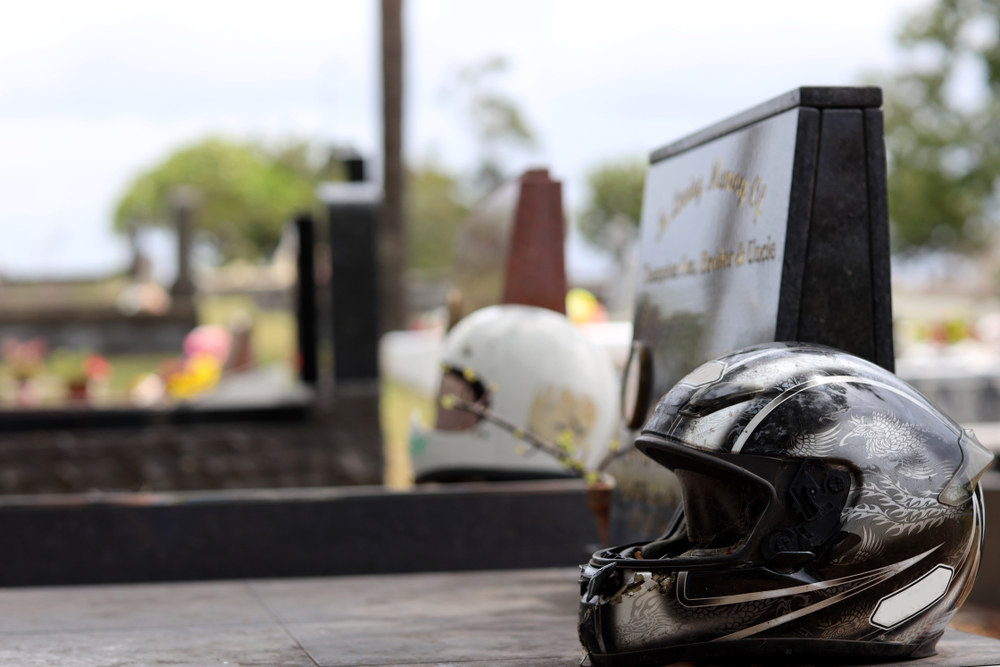A brief commentary on the repeal of Missouri’s motorcycle helmet law.

In this blog, I comment on this misguided law and point towards solutions to advance driver safety.
The repealing of the Missouri helmet law comes as no surprise to me. Several years ago, I testified in Jefferson City in favor of the helmet law. I could tell that there was increasing pressure from the motorcycle lobby, those who felt like the helmet law was an unwarranted restriction of a motorcyclist’s personal liberties.
Finally, in this last legislative session, the motorcycle lobby got their way. The lawmakers passed the bill and the Governor signed it.
Those who are in favor of a motorcycle helmet requirement, including driving safety advocates, argued successfully that repealing the helmet law would create more crashes resulting in serious brain injury and death. But this made no difference.
Our state senators and representatives were apparently ok with more death and serious injury. They just wanted to make sure the state was relieved of any additional financial burdens associated with medical expenses, which is why they added the health insurance requirement.
All of this does nothing to address the real victims of helmetless motorcycle crashes, however: those who are left behind.
A True Story
Several years ago, I represented the mother and father of Corey, a 16-year-old boy who was killed in a motorcycle crash. It happened on Highway 50 near Lee’s Summit. Corey was lawfully riding his motorcycle, with a helmet, when a driver pulled in front of him. Corey had no fault or contribution in the crash.
This case is similar to many motorcycle accident cases I handle. A driver pulls into the path of an on-coming motorcycle because they did not see the motorcycle. When this happens, often the best a motorcyclist can do is to lay down the bike in an attempt to soften the blow.
Corey was unable to avoid the crash and was killed instantly. I mourned with the family, maximized the family’s legal recovery, and resolved that I would do what I could to help advance driver safety in Missouri.
Before too long Corey’s parents and siblings moved away. As I recall, the family house was close to the accident scene. It was just too painful to pass through that area. Corey’s family left for Ohio.
A Matter of Survival
I sense that many people who have lost a loved one in a roadway fatality have the same experience. Over time, you just get used to living with the loss, but it never goes away. The pain remains for the parents, siblings, family, and close friends.
However, whenever I think about Corey and his family, I also think about the driver who caused Corey’s death. She was also left behind.
I don’t remember her exact age, but she may have been retired. I think I heard that she taught piano lessons at her house. I never met her throughout the legal process. I did know, however, that she needed as much healing as everyone else connected to Corey’s death.
Put yourself in her position. Consider how differently her life would have been had Corey survived.
Advancing Solutions
Given the above, instead of repealing helmet laws, it seems to me that we should be doing everything we can to make Missouri roads safer. This is especially true as our roads become more dangerous.
As a crash lawyer, I have had a front-row seat and a bird’s eye view for how our driving culture has changed. We are driving faster, more distracted, and more aggressive. All of us, not just motorcyclists, are subject to a new universe of roadway risk.
Hoping to be part of the solution in preventing the types of collisions that cause serious injury or death, I developed a driving safety program that helps influence drivers to adopt safe driving habits that protect themselves, their passengers, and others on the road. I call it Drive By Example.
Using the Drive By Example platform, I am dedicating my work this year to helping protect those who are most vulnerable on the road, including teen drivers and motorcyclists.
In the wake of the helmet law repeal, my work becomes even more important. The new helmet law that requires a motorcyclist to be 26 and covered by health insurance is a poorly constructed law – mostly because it is unenforceable. Also, what kind of message does this send bikers who are not yet 26?
The new law needs corrective action, and I will be writing on that in a future blog.
In the meantime, please consider the legal duty each of us has while driving—to exercise the highest degree of care in the operation of a motor vehicle. We can meet this duty by driving alert, buckled, cautious, and defensive.
Stay safe and keep an extra careful lookout for motorcycles on the road.






